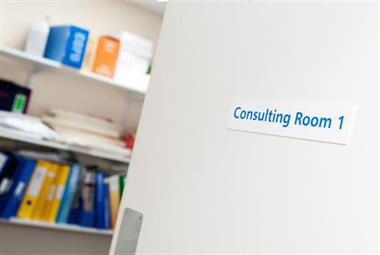The CQC’s old mantra was that it ‘looked for good’ when it inspected services, and historically it has generally found it in GP practices, with the vast majority rated ‘good’ or ‘outstanding’
However, times are changing and the CQC is now operating under a new strategy and there has been a significant shift in approach to inspections and ratings
The CQC has moved away from periodical inspections and is now focussing inspection activity where they deem there to be risk. This new ‘monitoring approach’ means that GP practices could see inspection experiences become more painful.
The CQC will come looking for where it perceives there to be problems. It seems likely that critical inspection reports, poorer ratings and, in some cases, enforcement action will be more common following inspections.
Information review
The CQC plans to do a desktop-based ‘information review’ – an assessment of data it has on a practice – on a monthly basis to determine a risk profile in the first instance.
If the CQC deems a practice to be ‘high risk’, this will prompt an inspection. If the regulator deems it to be ‘medium risk’, there will likely be ‘further monitoring activity’ to follow (in the form of possibly a phone call to the practice and other enquiries). It could also prompt an inspection at any time.
Where there is ‘low risk’ the CQC will publish an assurance statement on its website saying that it does not consider that a rating needs to be re-assessed and will review the position in a further month.
Conceptually, therefore, the CQC is not even just looking for bad when it inspects because it has already decided a provider may be risky. Inspectors will already have formed a view in their minds from the information they have gathered, without giving providers the opportunity to contextualise and explain data or, in the cases of complaints or reports, prove them to be inaccurate or unmerited.
Providers will have little, if any, sight of, or control over, this information review exercise and may not know why they are deemed a risk.
The CQC has set out the data it will look at in summary, which includes current CQC rating, data from surveys, past or ‘open’ breaches of regulations, whistleblowing reports, complaints and any themes arising from safeguarding concerns.
On the face of it, this is probably a sensible place to start for risk indicators. However, the source of the data does not dictate its quality, nor how much weight the CQC should, or will, place on it. It is also not clear what steps the regulator will take to verify it. Will, for example, it take every complaint at face value and assume it is based on facts which are true?
Practices that have improved
This approach to inspections may also penalise those who have genuinely improved. There could be a scenario where a practice rated ‘requires improvement’ takes steps to improve, but because it isdeemed ‘low risk’ in future information reviews, there is nothing to prompt a further inspection to enable its rating to change.
The CQC could potentially put steps in place to mitigate this situation, but it is very difficult to see how practices that have taken steps and improved from ‘good’ to ‘outstanding’ will ever get a chance to have their rating reviewed.
We suspect the CQC will say its ‘assurance statement’ deals with the issue of ratings being out of date, but when the public is looking at the big, brightly coloured, traffic light rating system on the CQC website, will they really dig around to identify how old that rating is, and check monthly updates?
The assurance statement will inform the public that the CQC has not found anything it deems requires the rating to be re-assessed, but unless the statement gives detail about why it has improved (or does not need re-inspecting), this is not going to help matters.
The CQC has promised a ‘smarter’ and ‘more flexible’ approach to ratings, so that there is a real time view of risk at the practice. However, unless there is significantly transparency in the information review and further monitoring stages, it is difficult to see how this will be achieved.
Some GP practices might need to rethink how they approach inspections and ratings. In some cases, providers might need to take matters into their own hands to ensure that the public (and important stakeholders) can see the true picture at a practice. This could mean being prepared to challenge CQC decisions, reports and ratings with much more force and more often than they used to.
Maddi Gaunt is a solicitor and Paul Ridout is managing director of Ridouts
If providers have any concerns about the new approach and how it might impact on them, or need advice on CQC engagement or activity more generally, please contact Ridouts Professional Services on 020 7317 0340 or request a call back via our website.
![]()
Ridouts Professional Services PLC
Ridouts is a law firm that only acts for care providers. We provide legal, operational and strategic advice when providers are faced with matters that could negatively impact their businesses, such as poor CQC inspections and enforcement action. www.ridout-law.com
This article is funded by Ridouts for GP Connect

.jpg)










